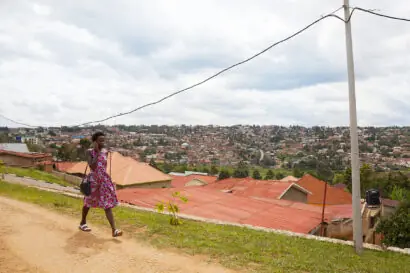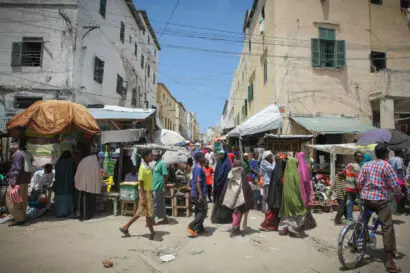As I participate in the World Economic Forum in Davos this week, I feel a keen sense of urgency. We are facing multiple crises: poverty and inequality are increasing, climate change is wreaking havoc, food and energy prices are rising, and governments are in massive debt. The need for greater public resources to invest in recovery and mitigation is clearer now than ever.
But tax avoidance and evasion reduce fiscal space and valuable resources to finance development. That is why, for Colombia and the whole Latin American and Caribbean region, a top concern is the establishment of a fairer international tax system. The two-pillar solution delivered by the OECD/G20 Inclusive Framework is a step forward, but does not fully address the concerns developing and emerging countries have raised.
Latin American and Caribbean countries face common challenges when it comes to cross-border taxation, from the role of tax havens to taxing the digitalized economy. We share the same problems, but we have not shared our views and technical strengths to come up with common solutions. Therefore, our interests have not been visible enough in the international tax policy debate so far, and this must change.
Key areas needing more work
To better represent the interests of developing countries and emerging economies, more remains to be done in three key areas:
- The reallocation of taxing rights: Pillar One does not address the current bias in the allocation of taxing rights towards advanced economies. Whilst Pillar One can be seen at best as an interim solution, and countries should therefore be allowed to consider complementary and alternative measures, there is a need to build on the current outcome towards a fairer reallocation of taxing rights based on a more comprehensive fractional apportionment of all multinationals’ profits, as originally demanded by the G-24 Group of countries.
- Tax competition: Pillar Two is intended to limit harmful tax competition between countries and will force all countries to rethink how they attract foreign direct investment and engage in industrial policies designed to expand employment and raise living standards. With the need to tackle climate change, curb harmful emissions, and promote green technology, developing countries and emerging economies can work together to reshape tax incentives towards other fiscal interventions such as research and development support and dedicated infrastructure.
- Taxation of wealth: As yesterday’s Oxfam inequality report illustrates, much remains to be done to address offshore wealth, starting from increasing ownership transparency and mitigating tax competition to attract wealthy individuals.
A new ministerial decision-making platform
To address these issues, I am proud to announce today a new initiative: The First Latin American and Caribbean Summit for an Inclusive, Sustainable, and Equitable Global Tax Order.
The Colombian Ministry of Finance and Public Credit is inviting all Ministers in the region to come together to discuss tax policies and standards. The summit will be held in Cartagena, Colombia, on July 27-28th.
Inclusivity, sustainability, and equity are fundamental values that should guide the reform of tax rules that are complex, inequitable, and unfit for the 21st century. Our commitment is to create a ministerial decision-making platform, but we value the voice of civil society. Our choices must respond to what our citizens are asking us for. So, to kick off the process, we are inviting academics, civil society organisations, and the private sector to identify unresolved issues and share their ideas. These will be presented at a conference in Bogotá on May 2nd and 3rd, leading up to the summit.
Objectives and vision
The Cartagena Summit has three main objectives:
- Create a space for regional tax cooperation and coordination that we hope will become a permanent, transparent, and inclusive decision-making platform.
- Establish a dialogue between the technical and the political, so that the decisions of the region’s leaders are informed by those who have studied the issues in depth and the voice of civil society.
- Agree common tax measures and standards to tackle shared problems in our region, including reducing inequality and poverty and strengthening peace.
Diplomatic invitations will be sent through Colombia’s embassies from next week. However, this first summit is only the beginning. Our region needs a permanent and constructive platform for tax-decision making. The United Nations Economic Commission for Latin America and the Caribbean (ECLAC) has expressed its full support and is committed to taking up the baton and turning this first summit into a permanent tax decision-making body in Latin America.
So, over the course of this year, we will work closely with ECLAC and regional leaders to design the governance and structure, to be finalised with my colleague Ministers at the Summit. This is the future we want: a better international taxation system that is fair and will help in the fight against inequality.
With thanks to Rhiannon McCluskey for editing this piece.



